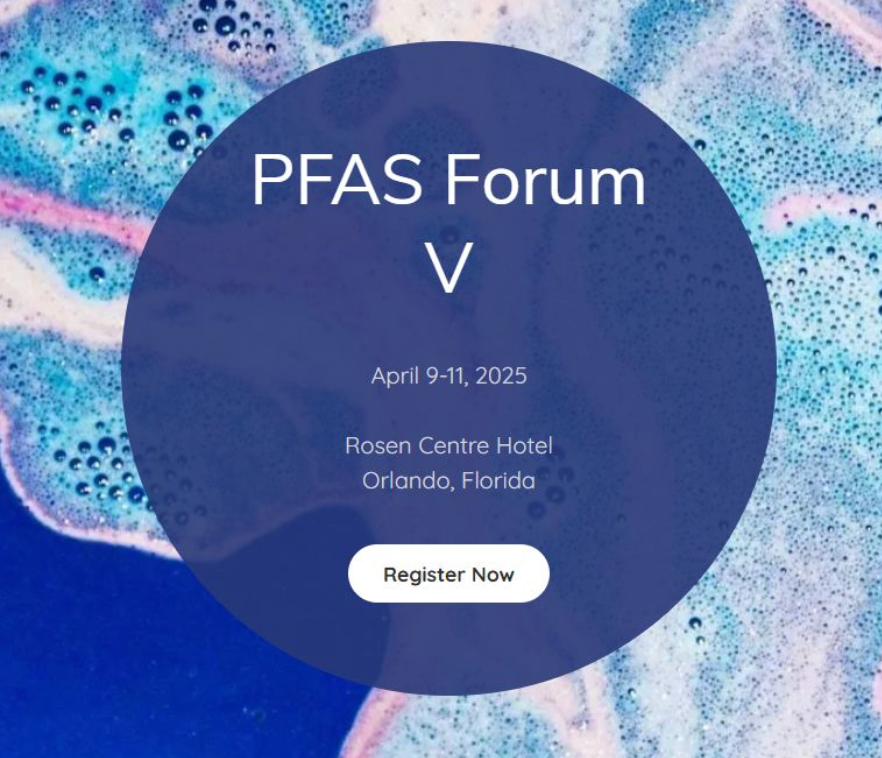RSC PFAS CAMPAIGN
The Royal Society of Chemistry is calling on the UK Government to overhaul its drinking water standards, after new analysis reveals more than a third of water courses tested in England and Wales contain medium or high-risk levels of PFAS, more commonly known as forever chemicals.
October 30, 2024

This group of widely used and enduring chemicals has been linked to a range of serious adverse health conditions including testicular cancer, thyroid disease, increased cholesterol levels, liver damage and fertility issues, as well as damaging the development of unborn children. Millions of people interact with PFAS every day as they are used to add qualities like non-stick coatings to pans and stain-proofing to furniture and can also be found in batteries.
The RSC is calling on the UK Government to reduce the cap on PFAS concentration levels that require immediate water treatment with its #CleanUpPFAS campaign, saying the current limits do not go far enough. At present, 35% and 37% of English and Welsh water courses that were tested contain a medium or high-risk level of PFOS and PFOA respectively – but these are just two types of PFAS out of the thousands that exist.
The Royal Society of Chemistry is pushing for a tenfold reduction of the current cap per individual PFAS type – from 100 nanograms per litre to 10 nanograms per litre – as well as an overall limit of 100 nanograms per litre for the total amount of PFAS.
Britain’s thresholds are currently far more lenient than those in other leading economies. For example, the United States is introducing a limit of four nanograms per litre for two of the most common PFAS types – PFOS and PFOA – and the EU’s Drinking Water Directive states that 20 widespread PFAS must collectively not exceed 100 nanograms per litre in total.
Stephanie Metzger, Policy Advisor at the Royal Society of Chemistry, said: “The UK monitors for a long list of PFAS, but we are lagging far behind the US and the EU when it comes to the amount allowed in our drinking water and what is considered healthy. We know that PFAS can be filtered from drinking water – the technology exists, so increasing the level of filtration is just a matter of expense and political will.
“In the Drinking Water Inspectorate’s own words, levels above 10 nanograms per litre pose a medium or high risk to public health. We’re seeing more and more studies that link PFAS to a range of very serious medical conditions, and so it’s imperative that we take a proactive and precautionary approach for the sake of public health.”
Launching an interactive map to allow people to look at the levels of PFAS in their local waterways, the RSC is now calling on people to write to their parliamentarian to demand change and pass stricter statutory drinking water standards.
Samples from the River Thames have recorded the highest PFAS concentrations in the country, while water sources in all regions of England and Wales contain levels of PFAS that the Drinking Water Inspectorate classifies as either medium or high-risk.
The RSC has also warned that a lack of cohesion among government departments and agencies is a major barrier to effective chemicals regulation in the UK and recommends the establishment of a National Chemicals Agency.
Stephanie Metzger added: “We urgently need an overarching national regulator for chemicals management, and the gold standard approach would be to create a National Chemicals Agency, which could facilitate greater cohesiveness and connectivity.
“PFAS have an important role to play in our society – they’re used in batteries, protective clothing for firefighters, and medical devices, among a number of other uses. We just need to make sure PFAS are handled appropriately during manufacturing, disposed of safely, and filtered out of our drinking water, so that we can reap all of the benefits without the adverse side effects, and a National Chemicals Agency could be instrumental in helping achieve this.”
The Royal Society of Chemistry is calling on the Government to:
- Establish new statutory action standards for PFAS in drinking water with a maximum concentration of 10 ng/L per single PFAS and 100 ng/L for the overall summed concentration of all PFAS.
- Ensure the many hundreds of types of PFAS are reported and captured in a national inventory.
- Impose and enforce stricter regulatory limits on allowable levels of PFAS in industrial discharges.
- Develop plans for a national chemicals regulator to provide better strategic coordination.
- To access the interactive map and find out more about the Royal Society of Chemistry’s #CleanUpPFAS campaign, please visit: rsc.li/clean-up-pfas.
What are PFAS?
Per-and poly-fluoroalkyl substances (PFASs) are widely used chemicals containing the perfluorocarbon moiety. The PFAS family comprises over 10,000 different man-made compounds categorised into different sub-sets. They are known for their unique water, oil, heat, stain and grease repellent properties.
For more than 60 years PFAS have been used in the manufacture of products such as fire-fighting foam, protective clothing, furniture, adhesives, food packaging, heat-resistant non-stick cooking surfaces and insulation of electrical wires, which has led to their widespread release into the environment.
The carbon-fluoride bond is one of the strongest in nature, making PFAS extremely resistant to natural degradation - they are often referred to as “forever chemicals” – so can contaminate soil and drinking water sources and have been found in rivers and lakes.
Combined with their widespread use and increasing evidence of toxicity, concerns are being raised about the impact of PFAS on human health and the environment.
There is an answer! UK company builds solution to trap and remove PFAS from water
Previous technologies to filter out PFAS from water were non-selective and so they could not reliably remove PFAS, were affected by other constituents in the water, and could not adapt easily to changing regulations.
However, Puraffinity, a spinout company from Imperial College London, has built a novel new technology that uses absorbent materials to essentially trap and remove PFAS from water. The solution can even be modified to target individual types of PFAS, which allows it to meet the demands of changing global regulations, and can be used in everything from large-scale industrial facilities to domestic applications.
Henrik Hagemann, Chief Executive Officer and Co-founder at Puraffinity, said: “Our belief is that deep science holds the answers to a myriad of environmental challenges that pose a threat to our planet and wellbeing.
“We've seen tremendous gains in the Life Sciences sector in response to the pandemic, with vaccines and detection developed at pace. It's now time to shine that beacon of focus on addressing environmental challenges, where the tools of creative engineering and material science can provide a new horizon for addressing PFAS treatment requirements for the global market."
RSC article:
https://www.rsc.org/news-events/articles/2023/oct/pfas-cleaning-up-uk-drinking-water/






